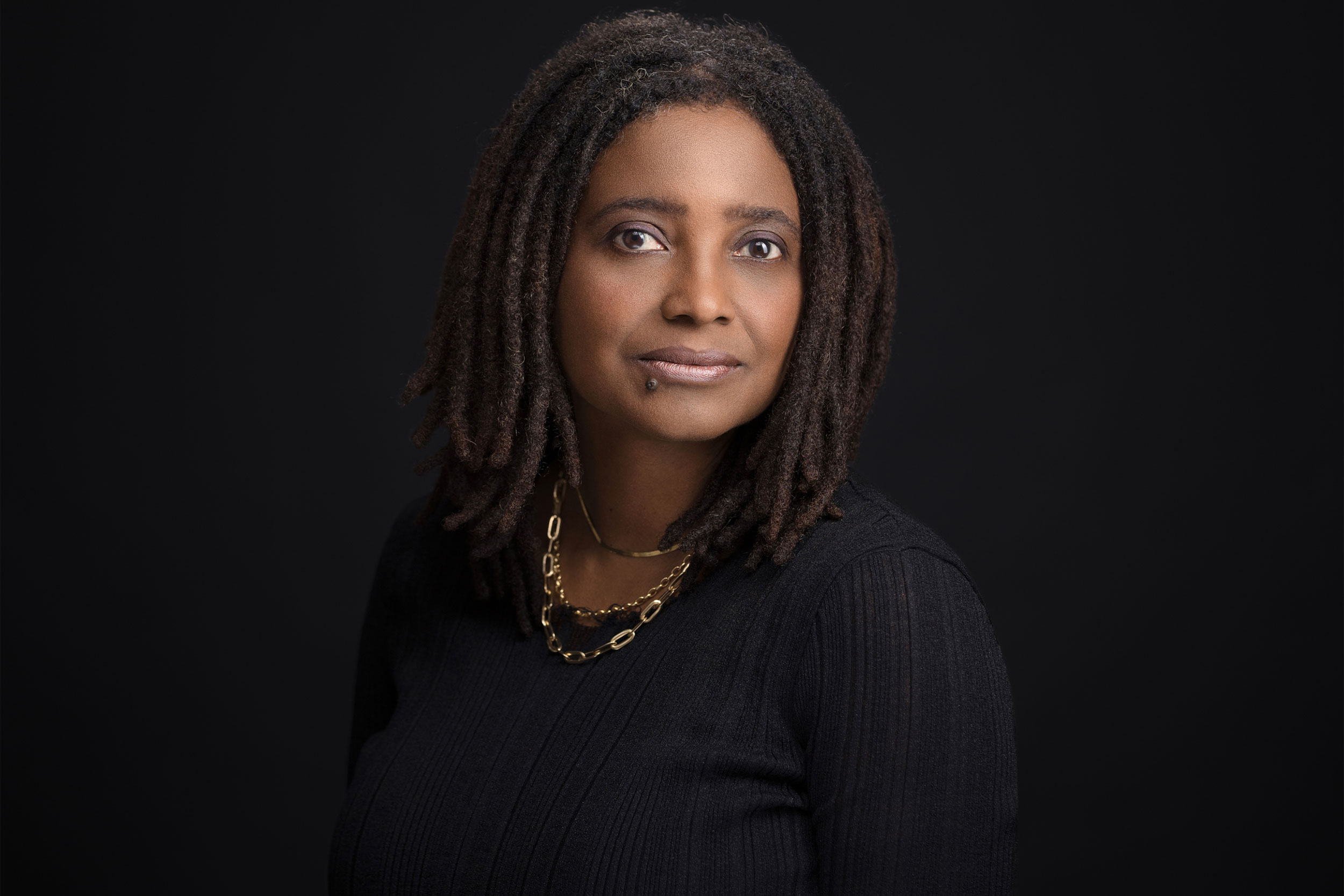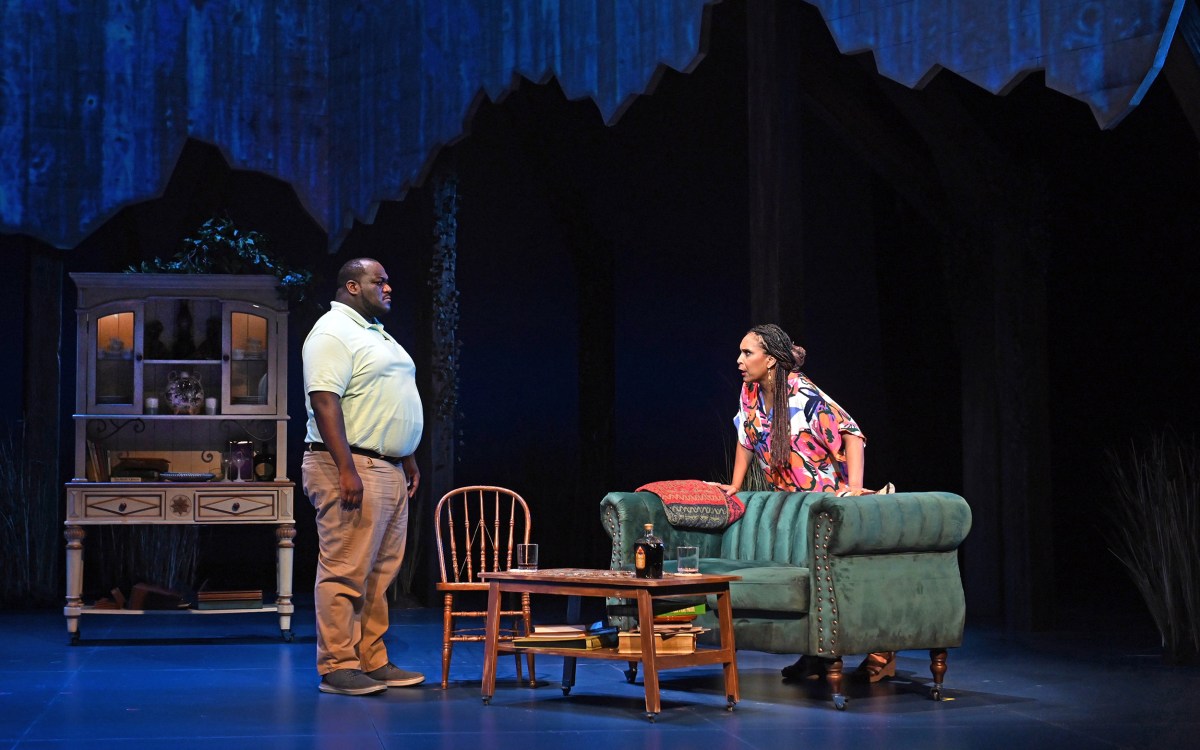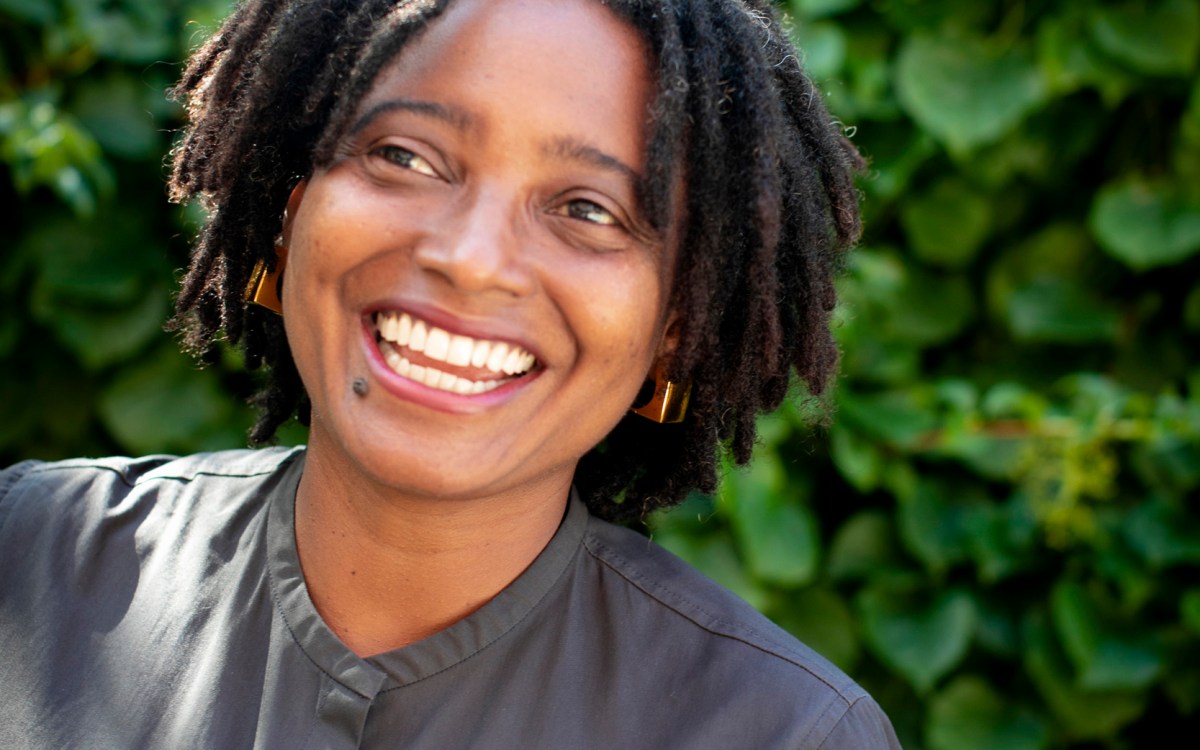
Photo by Andrew Kelly
‘Still caught in a system that makes us smaller than we could be’
Tracy K. Smith explores America’s past, present challenges, hopes in new book
Tracy K. Smith taught herself to meditate in the summer of 2020, anxious and grieving the loss of Black lives around the country like those of George Floyd and others. Sitting every day in an Adirondack chair under an oak tree in her backyard, she would burn a little sage or cedar, close her eyes, and breathe.
The sessions, which started as a way of “holding herself together” amid the “din of human division and strife,” became a time to reflect on the past, to conjure visions of family members and ancestors who offered consolation, comfort, and guidance.
The Pulitzer Prize-winning poet and professor of English and of African and African American Studies writes about this experience in her new book, “To Free the Captives: A Plea for the American Soul.” A personal manifesto on memory, family, and history, the work tackles questions including how the citizens of this nation, now 400 years into the American experiment, can come together to a new view of their shared past.
Smith, who is also the Susan S. and Kenneth L. Wallach Professor at the Harvard Radcliffe Institute and a former U.S. poet laureate, has written five poetry collections including “Such Color,” “Life on Mars” and “The Body’s Question,” and a memoir, “Ordinary Light.” She sat down with the Gazette to discuss associative writing, liberation as an intergenerational project, and finding comfort in reading. The interview has been edited for length and clarity.
Q&A
Tracy K. Smith
GAZETTE: Could you talk about the ideas of freedom and captivity that you return to throughout the book?
SMITH: The big question I’m hoping a reader might agree to deal with is: “Is anyone free in this country?” Yes, there are differences in access; there are structural impediments that we’re beginning to talk about. Our vocabulary for structural racism helps us to do that. But no matter who we are, and no matter the degree of freedom or privilege or permission that we enjoy, we are still caught in a system that makes us smaller than we could be.
I believe this circumstance has a lot to do with the quiet terms of regard that we accept. The ways that we agree, without being completely conscious of that fact, to see one another as entitled to different possibilities, different degrees of access. I’m worried about the people in this country who continue to be held back from the full experience of freedom, safety, dignity, and opportunity. And I’m also concerned for those who feel themselves to have the greatest degree of power — because they, too, are captives. That’s a big dilemma that the book is seeking to be useful to.
GAZETTE: The book shifts backward and forward through time, weaving together scenes from the time of slavery, World War I, the Civil Rights era, and your own life. What was your process in piecing these together?
SMITH: I wanted to allow myself the freedom to think not linearly but associatively, which is often how I think in a poem. In a poem I might leap from one time period to another because events or people or images connect them. It allows a kind of energy to take root in the work. You get excited when you find you have been in one place, and you’ve leapt with the speaker of the poem into a place that feels far away, yet also keenly relevant.
But there’s also a dimension of this “time travel” that had to do with my own emotional need. I needed to imagine that my father’s living could be useful to the feeling of despair or hopelessness that I was dealing with when I was writing. Looking up from a problem and out toward somebody I trust, even if they’re no longer alive, was a form of guidance that helped me not just keep writing but keep going.
GAZETTE: You write about your family’s resilience throughout the generations. What was it like to learn more about them through your research for this project?
SMITH: What was exciting for me is the idea that those of us who are committed to the project of liberation have invested in something that is a durational project. It heartened me to imagine that my grandparents, deceased in the 1970s, are still at work on that undertaking. It heartened me to imagine that there’s a type of contribution that we can make, even outside the scope of a single life.
The archival research, of course, tells a story of strategies, insistence, and also improvisation. I was looking for my dad, looking for my grandparents, and those documents — draft cards, census records, military paperwork — it started to reveal a story. It wasn’t just the story of my own family; it was the story of a collective investment in a country and a belief in many of the promises that come with the narrative of America. The resourcefulness that facilitated their making do bears witness to the fact that many of those promises didn’t fully extend to people like my grandparents and their parents.
GAZETTE: Why did you decide to include historical photos of family members and Black American soldiers?
SMITH: The first photos that I turned to were of Black soldiers of World Wars I and II. It was a matter for me at that time of wanting to have a more visual and visceral vocabulary for thinking about the past and thinking about those young men. What was the expression on their faces? What was their physical bearing as they stepped into the role of a soldier?
It was ambient research, but the aliveness of those old photos convinced me that we still owe something to those young men.
There’s a love and a reverence that I feel for the family members in my personal photos. I didn’t just want to be taking from the archive, but to offer something, too. To say something as vulnerable as, “These are my people. I want you to meet and love them.”
GAZETTE: What is your writing process like?
SMITH: I wake up at 5 a.m. I do the thing I always used to envy other writers for being able to do — get up before the sun comes up, before everybody else is awake, and take advantage of that quiet. Much of this book got written in that time window, and, as I got closer to deadline, the other side of that window when everybody’s asleep.
The nature of the listening that I was doing — listening out toward these other lives — it felt correct that the time they might be awake was the time when the rest of my world was quiet.
GAZETTE: What role does reading and writing play for you during the most difficult emotional moments, like the one you describe in 2020?
SMITH: During those periods where I felt small, weak, afraid, and isolated, voices of writers like Lucille Clifton or Emily Dickinson allowed me to feel accompanied and to draw courage from the scales and shifts those writers make. To say, “Yes, we have a problem of our collective experience in a community or a nation, but we also operate on far vaster scales.”
When poets zoom out toward the vocabulary of the soul or the afterlife, a different kind of courage breaks in. Like the writers I revere, I, too, want to be of use in bolstering and also chastening the communities that I belong to. What might it mean to want to protect a nation that I also feel degrees of conflict about? What might it mean, to want to say, “I love this place enough to want to offer an intervention”?






